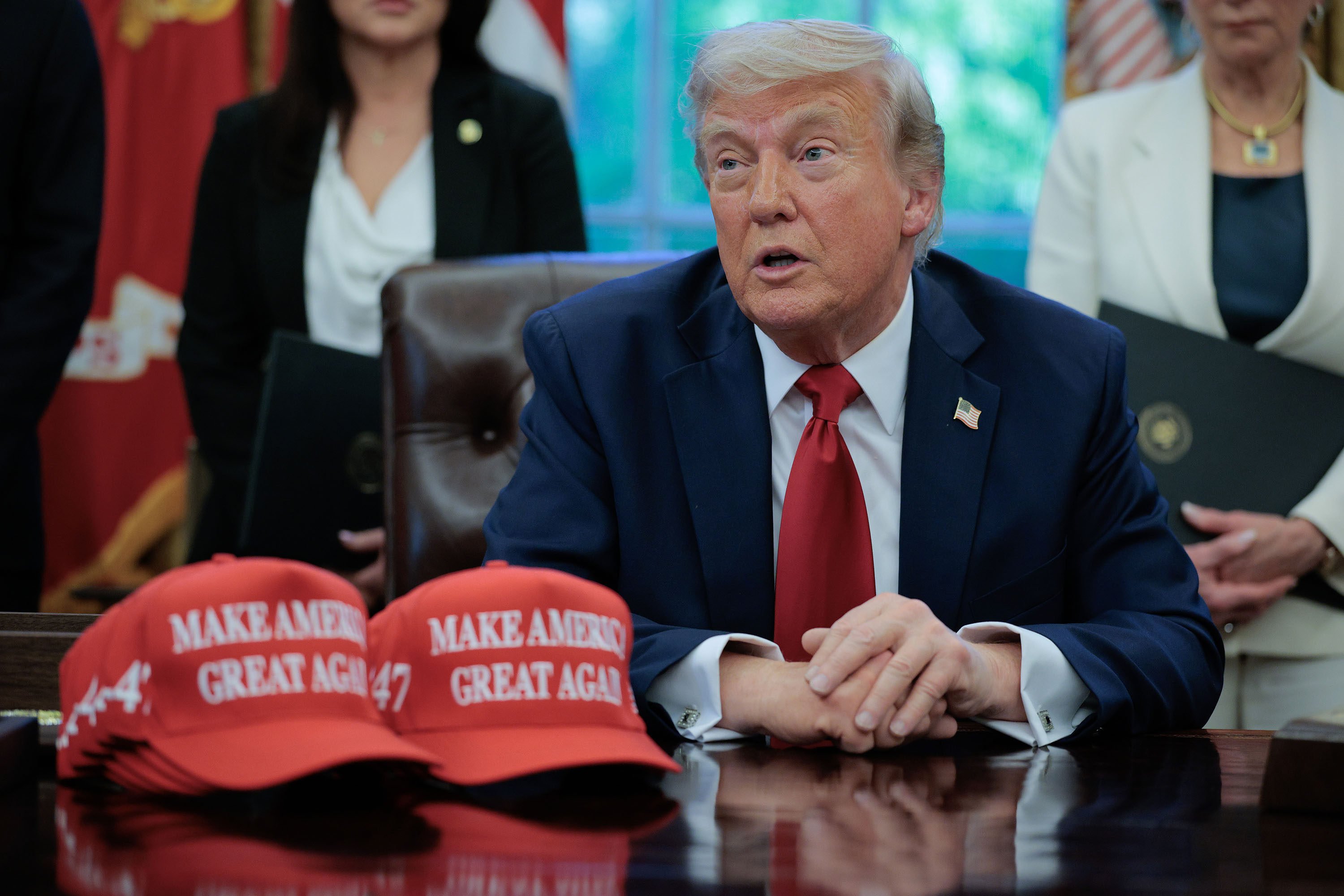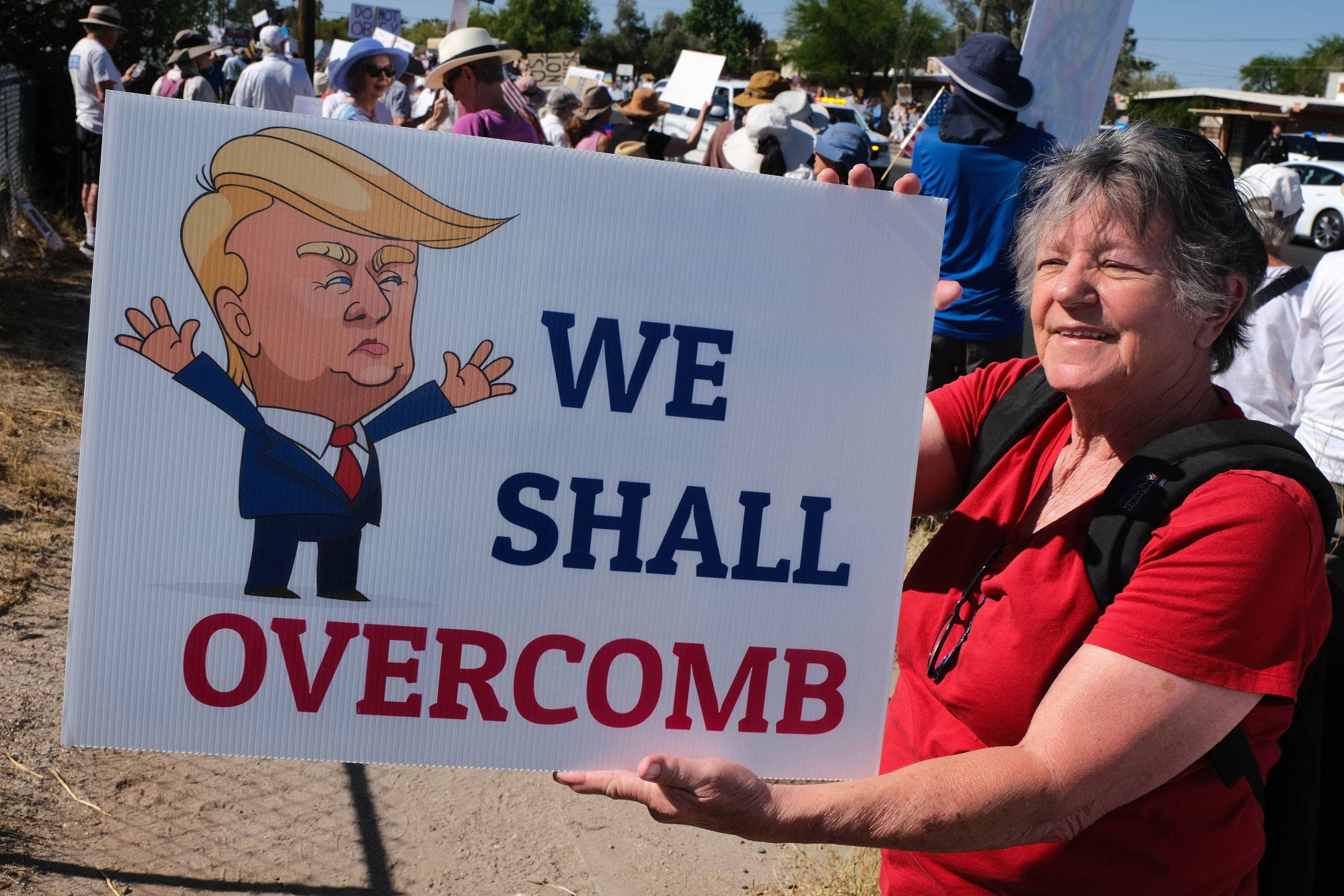Trump Floats Income Tax Cut In Bid To Ease Tariffs Bite; Says Us Talking To China On Trade

US President Donald Trump suggested on Sunday that his sweeping tariffs would help him reduce income taxes for people making less than US$200,000 a year, as public anxiety rises over his economic agenda.
Trump has previously argued that tariff revenue could replace income taxes, though economists have questioned those claims.
“When Tariffs cut in, many people’s Income Taxes will be substantially reduced, maybe even completely eliminated. Focus will be on people making less than $200,000 a year,” Trump wrote on Sunday on his Truth Social network.
In a matter of weeks, Trump’s tariffs have roiled the global economy, led to fears of higher prices for Americans and led to warnings that his policies will lead to a recession.
A CBS News poll released on Sunday said 69 per cent of Americans believe the Trump administration was not focused enough on lowering prices. Approval of Trump’s handling of the economy in the poll declined to 42 per cent compared with 51 per cent in early March.
Trump wants to extend reductions in income taxes that were approved in 2017 during his first presidency, many of which are due to expire at the end of 2025. He also has proposed expanding tax breaks – including by exempting workers’ tips and social security earnings – while slashing the corporate tax rate to 15 per cent from 21 per cent.
Treasury Secretary Scott Bessent responded to polling on Sunday, saying that US consumers are still spending and the administration is working on bilateral trade deals after Trump imposed so-called reciprocal tariffs on many countries in early April. He subsequently paused the levies for 90 days for all affected countries except China.
The effort involves 17 key trading partners, not including China, Bessent said on ABC’s This Week.
“We have a process in place, over the next 90 days, to negotiate with them,” he said. “Some of those are moving along very well, especially with the Asian countries.”

Bessent reiterated the administration’s argument that Beijing will be forced to the negotiating table because China cannot sustain Trump’s latest US tariff level of 145 per cent on Chinese goods.
“Their business model is predicated on selling cheap, subsidised goods to the US,” Bessent said “And if there’s a sudden stop in that, they will have a sudden stop in the economy, so they will negotiate.”
Trump has said the US is talking to China on trade, which Beijing has denied. Bessent said he did not know if Trump and President Xi Jinping had spoken.
He said he saw his Chinese counterparts when the world’s financial officials gathered in Washington last week “but it was more on the traditional things like financial stability, global economic early warnings”.
Bessent said he thinks there is a path forward for China talks, staring with “a de-escalation” followed by an “agreement in principle”.
“A trade deal can take months, but an agreement in principle and the good behaviour and staying within the parameter of the deal by our trading partners can keep the tariffs there from ratcheting back to the maximum level,” he said.
In Congress, the framework for a bill that Republicans agreed on in early April would allow for as much as US$5.3 trillion in tax cuts over a decade. Trump trade adviser Peter Navarro has suggested Trump’s tariffs will generate more revenue than that, while most economists project that they will bring in significantly less.


